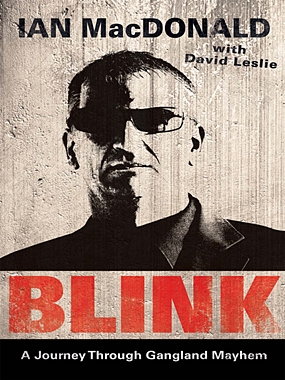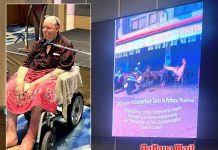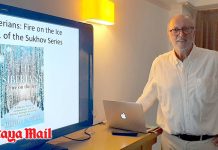It would appear that the only way hardened criminals can go “straight” after being released is by having a “tell all” autobiography published. This week’s book is one of those. Blink (ISBN 978-1-780-57575-9, Mainstream Publishing, 2012) is the story of a Glaswegian, Ian MacDonald, as narrated to ghost writer David Leslie.
The book begins with Ian MacDonald relating his childhood. It is almost pure psychological case textbook stuff, with a drunken abusive father eventually turned out by his mother, expelled from school in his teens, to hang around street corners and associating with petty criminals, to then being picked up himself and sent to borstal (junior prison) by the time he was 16 years old. By the time he was 21 he had made up his mind to be a career criminal, and with the ‘easy’ pickings of petty thievery as his apprenticeship, he marched on from there.

What is interesting, is that despite incarceration in borstal (Scottish junior prisons) which did produce “black holes of depression and emptiness after visits from the family,” and heavy attention from the police, this was no deterrent for the youngster, so it can be argued that the penal system is not producing the correct end results. But what does? Of even more interest is the fact that his two younger brothers all followed him into lives of crime, incarceration, crime and incarceration. Ian MacDonald musing that the three brothers never experienced freedom at the same time.
During his (many) stays in prison, MacDonald describes incidents of brutality by the warders, and when on those rare occasions he was ‘outside’, police brutality. However, brutality by criminals seems to be accepted, and many murderers were his “good friends” such as the Kray brothers.
His insight of himself is extremely poor. He comes across as an aggressive psychopath, but then writes, “I have never sought out trouble, it just seems to follow me.”
It is difficult to understand the criminal mind, but this quotation might guide you, “David is unfortunately serving life after being convicted of murdering a guy in a Cumbernauld garden center.” That one sentence (pardon the pun) is almost enough to show the mind-set of the hardened criminal. It hangs on the word “unfortunately”. The word should have been “deservedly”, but when you have spent your entire life unabashedly thieving one obviously gains a different viewpoint. A sad reflection I am afraid.
For B.545, this book reads as a directory of criminals, with every page having mentions of his relationships with similar law-breakers. Another type of society populated by gangs who owe their allegiance to differing groups based on religion, drug territory or even opposing football teams. The lifestyle was one of spend, spend, spend with the money coming from theft and drugs, but hedonism was certainly more attractive than any form of gainful employment. This is probably true for us all, but somehow childhood lessons of cause and effect keep the rest of us on the straight and narrow. This book shows that Ian MacDonald did not learn those lessons.
If you come from Glasgow Scotland, read this book and feel embarrassed.




